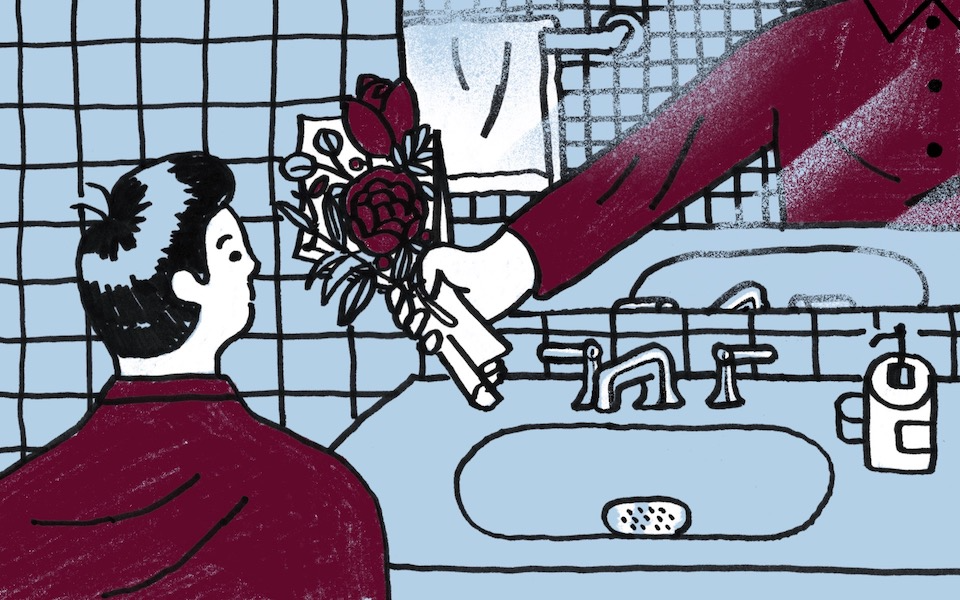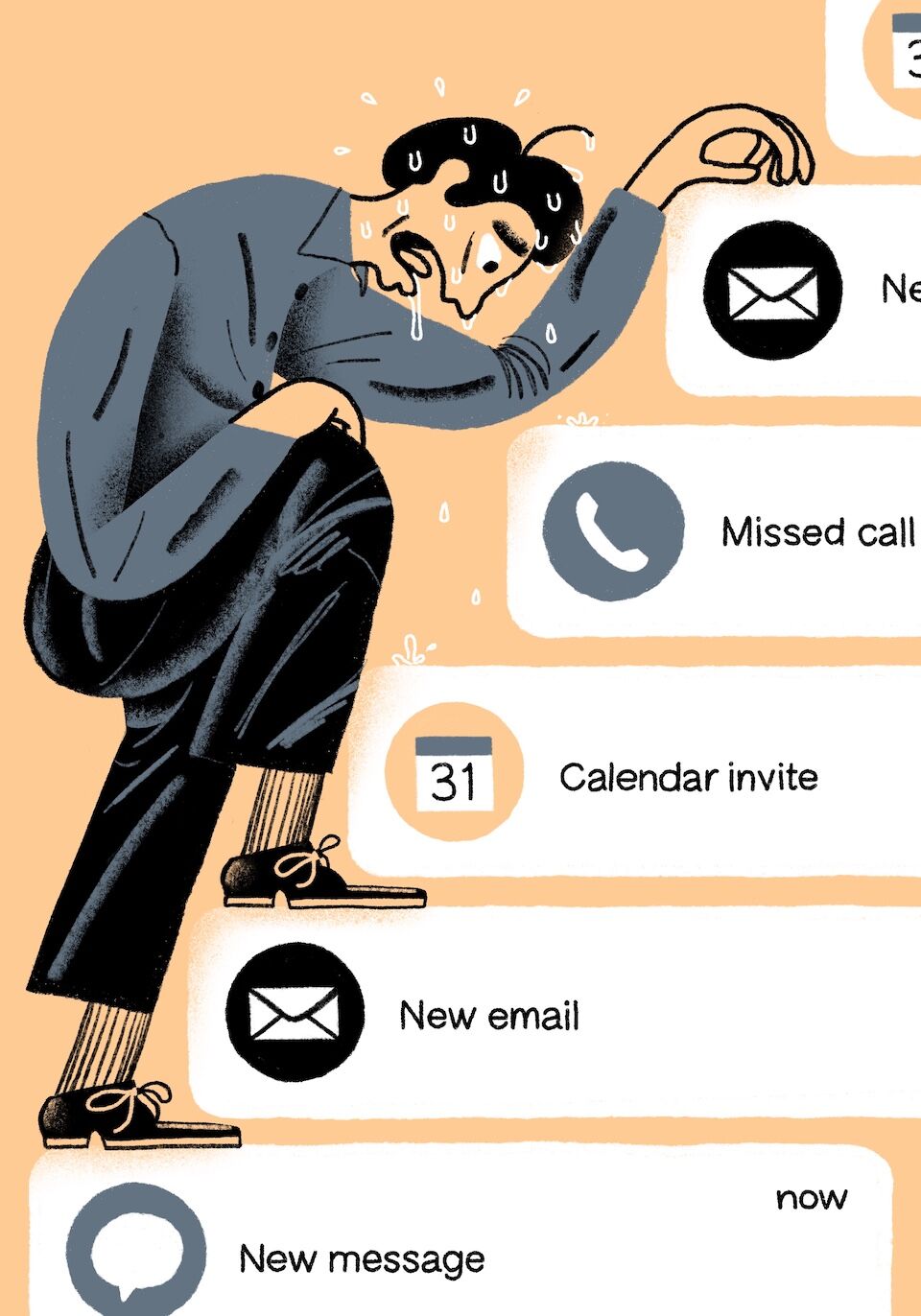
In the early-1970s, Pauline Rose Clance was working her way through graduate school, slowly inching her way towards her dream of psychology academia. But there was a problem: she was hounded by negative feelings surrounding her accomplishments.
Clance recalled taking examinations and leaving utterly petrified that she had failed. “I remembered all I did not know rather than what I did,” she later wrote on her website. Every accomplishment was subtly undercut by a fixation on everything that went wrong.
These feelings stuck with Clance all the way through grad school and into her first teaching role as a professor. And while teaching, she noticed something interesting: every year, dozens of her students—primarily female—reported similar feelings of inadequacy. “I saw these people who had gone to the best schools, often private schools, had highly educated parents and excellent standardized test scores, grades, and letters of recommendation,” Clance later told Amy Cuddy in her book, Presence. “But here they were, saying things like, ‘I’m afraid I’m going to flunk this exam.’ ‘Somehow the admissions committee made an error.’”
Her students disregarded all the effort they put in and persuaded themselves that their success was the product of chance. To Clance, it felt eerily familiar and she decided the phenomenon was something worth investigating.
Together with her colleague Dr Suzanne Imes, Clance pioneered research into impostor syndrome, although the pair initially dubbed it the impostor phenomenon. “Despite outstanding academic and professional accomplishments, women who experience the impostor phenomenon persists in believing that they are really not bright and have fooled anyone who thinks otherwise,” the pair wrote in their influential paper.
Across the world, millions of successful people are pursued by similar fears of inadequacy, despite achieving great things. The psychological thread that runs between all these people is called the impostor syndrome and it makes it hard—often impossible—for people to internalize their accomplishments. And although some people like Clance battle through, others are not so lucky.
What is impostor syndrome?
Today, other experts have taken up the mantle to continue Clance and Imes’s work, including expanding the definition beyond its initial female-centric focus. “Initially we all thought it was something that was unique to women,” says Dr Valerie Young, who began studying impostor syndrome some forty years ago and today speaks on the topic at major corporations and universities around the world. “But it was very quickly determined that a lot of men feel that way as well—increasingly so. Younger men are talking and writing about it much more than the baby boomer population of men did.” Like the women Clance and Imes studied, many men believe they are not as capable, competent, intelligent, or qualified as others, despite evidence of their accomplishments.
Working from sunrise to sunset, people believe they are catching up to the pack—but really they are increasing their risk of burnout.
Young is quick to move the conversation beyond mere feelings. “If [impostor syndrome] was just a feeling, it would be an interesting self-help topic,” she says. “But feelings translate into behaviors and those behaviors have consequences.” Often, says Young, people who suffer from impostor syndrome simply won’t achieve their potential. They’ll intentionally fly under the radar, staying silent in meetings and keeping brilliant ideas locked away in their desk drawers. Other times, they’ll slip to the other extreme, constantly putting in “undue effort” to account for a perceived lack of talent. Working from sunrise to sunset, people believe they are catching up to the pack—but really they are increasing their risk of burnout.
These are just the visible consequences. There are far more insidious consequences hidden below the surface. “Procrastination is another coping mechanism,” says Young. “People will often never start or finish their book, paper, project, degree, or thesis.” Alternatively, some may hop between projects, from one job to the next or one degree to another, attempting to “outrun the no talent police.” These consequences are much easier to ignore because the individuals remove themselves from the circumstance to which the consequences would apply. Yet loss in talent cuts deeply—to both organizations and society as a whole.
Why do people suffer?
Impostor syndrome is illogical. Negative feelings exist despite objective markers of success. It was a great achievement for Clance to make it into grad school. It was a great achievement to earn her PhD. And it was a great achievement to win her first professorship. Yet, despite her inarguable accomplishments, she was still hounded by negative thoughts. So where do these thoughts come from?
There are different reasons why people suffer from impostor syndrome. “I refer to them as perfectly good reasons why you might feel like a fraud, because I want to really normalize these feelings,” says Young. Consider students, a group amongst which impostor syndrome is particularly prevalent. From the moment someone starts first grade to the second they graduate from college, students have their knowledge and intelligence rigorously assessed on a near daily basis. If a student messes up one test or misses one assignment, they receive a large, demoralizing “F.”
Then there are particular industries that reinvent themselves every two or three years, leaving some to feel left behind. The technology sector is a key culprit. In the 1980s, tech meant physical hardware like PCs. By 2000, it’d moved on to software. By 2010, it was all about mobile devices. And now, everyone is talking about artificial intelligence and machine learning. With its prodigious rate of change, no one can keep up with everything, leaving many feeling like frauds.
With the tech sector's prodigious rate of change, no one can keep up with everything, leaving many feeling like frauds.
However, while everyone’s perfectly good reasons may vary, Young says there’s a shared root cause. “Whether we know it or not, we have these unrealistic, unsustainable notions about what it means to be competent,” she says. “We set our internal bars so unrealistically and unsustainably high that no human could ever consistently clear them. And when we fall short, we experience shame.”
If we can break free of that common root cause, we can release ourselves from impostor syndrome and get back to working at our best.
Overcoming impostor syndrome
What we want is to stop feeling like an impostor. But feelings are the last to change. “The only way to stop feeling like an impostor, is to stop thinking like an impostor,” says Young. To overcome impostor syndrome, we must learn to think like non-impostors. We must learn to acknowledge our own victories and move past our failures. To do so, we must be prepared and equipped to change our thought processes.
“We need to become consciously aware of the conversation going on in our head,” she says.
“Become consciously aware of how we are measuring what it means to be competent and then consciously reframe the situation when we have a normal impostor moment.”
Normalize your feelings
In the moment, when someone is besieged with feelings of inadequacy, they put all the emphasis on their character and competency, ignoring the world around them. This can cause them to lose perspective and ignore other causes for their feelings.
“Too often we over-psychologize impostor syndrome,” says Young. “Instead, I invite people to normalize their feelings by considering the source; to do less personalizing and more contextualizing. Of course they feel that way. Who wouldn't [feel that way] in their situation?”
Consider Pam Moore, an accomplished journalist, speaker, and Ironman triathlete. Even though she has a sparkling career and a bibliography several miles long, negative thoughts still beset her as soon as she sits down behind a keyboard. “I worry that I'm a hack or that I'm in over my head because I didn't go to journalism school,” she tells Dropbox.
While Moore’s feelings are understandable, Young says they exist without context. To normalize her feelings, Young suggests she steps back and looks at what’s happening situationally. “Are you in an organizational culture that fuels self-doubt?” she asks. In Moore’s case, almost certainly. Pam says editors accept around 30% of her pitches. The remaining 70% end up in the bin. Such regular rejection is grating and it will wear down the emotional defenses of the most resilient people.
By acknowledging her perfectly good reasons, Moore can normalize her feelings. If she does so, her feelings shift from being a symptom of her character or personality to a product of her environment. “I really want to invite people to step back and contextualize,” says Young.
Acknowledge victories and success
By the time she was 25-years-old, Hayley Luckadoo had launched three different businesses—an event planning company, a female empowerment podcast, and a marketing consultancy. But it wasn’t her happy clients, positive testimonials, or grand business plans that lingered in her head at night. Instead, it was the proposals that prospects had rejected and rare mediocre reviews of her podcast.
This, says Dr Emin Gharibian, founder of psychological evaluation practice Verdugo Psychological Associates, is common. Our minds are evolutionarily predisposed to focus on the negative and dangerous. As psychologist and senior fellow of the Greater Good Science Center at UC Berkeley, Dr Rick Hanson, quipped: “[T]he brain is like Velcro for negative experiences, but Teflon for positive ones.”
“Impostors think that success is this straight line upward trajectory,” says Young. “But it's not. It's peaks and valleys.”
For people, such as Luckadoo, who suffer from impostor syndrome, negativity bias acts as an amplifier, forcing us to remember the events that suggest we are not as good as we purport to be.
To rebalance your mental scales, Gharibian says we must purposefully acknowledge and record our victories. “It’s all too easy to focus on our failures because they eat away at us, but you need to learn to acknowledge the positive things you've accomplished,” he tells Dropbox. “Remind yourself of your victories.”
For Luckadoo, that could mean writing a gratitude or success diary, recording every business victory and revisiting it every week or month. By reinforcing her successes, Gharibian says the positive experiences will start to stick and, eventually, outweigh her negative memories and voices.
Reframe success
In the spring of 2016, Johannes Haushofer, assistant professor of psychology and public affairs at Princeton University, published his résumé online. But unlike other résumés which typically detail achievements, successes, and victories, Haushofer’s focused solely on his failures.
The first section of his resume records degree programs he didn’t get into—three PhD programs for economics, psychology, and neuroscience, two graduate courses in medicine, and even a bachelors in international relations. The second details academic positions he was refused—three assistant professorships at Harvard, Berkley, and MIT. The third lists awards he didn’t get. And the fourth research papers rejected by academic journals.
Haushofer’s résumé of failures reveals the unending series of rebuffs and rejections behind all success and that, says Young, is an invaluable insight for all impostor syndrome sufferers. “Impostors think that success is this straight line upward trajectory,” she says. “But it's not. It's peaks and valleys.”
Young encourages people to reframe how they see success. If you don’t get a job or blow a big presentation, be disappointed—but don’t feel ashamed. “If you gave it your best shot, then there's nothing to feel ashamed about,” she says. “The more we can start learning to think like non-impostors, the better.”
Fight the impostor feeling
Identifying the impostor phenomenon was only the start of Clance’s work. She created a diagnosis scale—the Clance Impostor Phenomenon Scale (CIPS)—and later devised coping strategies and treatments. Working with an ever-increasing body of research, Clance has helped people learn to affirm their abilities and own their successes. As she works with her clients, they learn to turn down their internal voice, quieting their self-criticism from a roar to a whisper.
If, like Clance, your mind is besieged by self-critical feelings, know that you are not an impostor. Your thoughts are as likely the product of your environment as they are the result of your behaviors. So take charge of the conversation in your head and stop acting like an impostor.



